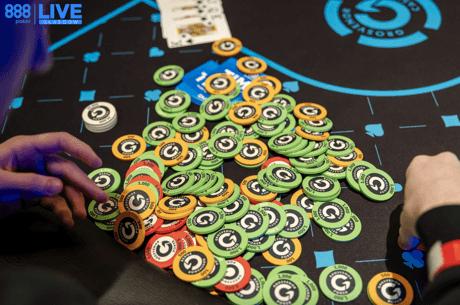Why Playing Deep-Stacked Changes Everything in Poker

A lot of people ask me about playing "deep-stacked" poker. You know, 200 big blinds, 300 big blinds or even deeper.
These are the kind of stacks with which you live poker players will be familiar. Deeper stacks also tend to happen often in "fast-fold" style online poker games as well such as Zoom on PokerStars.
The truth is, yes, playing deep-stacked does change things in poker. In fact it changes everything.
For one thing, you simply cannot afford to be getting 200 BB, 300 BB or more in the middle with the same range you would with 100 BB or 50 BB. "Stack off" ranges instead narrow considerably when the stacks get ultra-deep like this because losing a pot of this size is devastating for your win rate.
For example, most smart regulars will never get K-K or Q-Q all in preflop when they are 200-300 BB deep against another smart and competent regular. This is because they know that a good player is often only going to stick this many big blinds in the middle preflop with A-A.
Of course, I need to mention that (as usual) when you are playing against recreational poker players, you can just throw everything I just said out the window. Recreational players do not think about stack off ranges based on stack size. In fact, most of the time they aren't even thinking about what you can have at all!
So I do want to be very clear that this discussion of deep-stacked poker and stack off ranges is concerning competent regulars only.
Here's a "micro stakes" hand played online illustrating how playing deep-stacked should affect the decision whether or not to commit your entire stack:
In this poker hand, we flat preflop from the big blind with 6-6 with 300-plus BB effective starting stacks. Our opponent is a TAG (tight and aggressive) regular.
We nail the flop nearly as well as you possibly can with a full house. As I always suggest at these stakes in particular, our sole aim at this point should be to figure out how to get as much money in the middle as possible. Often when you are out of position as the preflop caller, the best way to do this is with a check-raise.
We do in fact check-raise the flop here, and our opponent goes ahead and makes the call as he rightly should with a wide range in this situation.
When the turn comes with a blank, I like the decision to simply bet out. That said, versus a really aggressive player another check/raise can be okay here sometimes as well. When our opponent calls again on the turn, I think we need to narrow his range considerably to mid-pocket pairs, trips, and overpairs.
Now to the river which is the real fun part of the hand. We bet out (as we should), and our opponent shoves close to 300 big blinds over the top. What now?
Well, like I mentioned off the top, our stack off range needs to be tighter when the stacks get this deep and we have the sixth nuts in this spot. We are also up against what appears to be a completely normal micro stakes regular and therefore the chances of him going crazy here with a bluff are slim-to-none.
I also do not expect a player like this to play a hand like trips this way. That's what a rec player would do instead. So this leaves monster hands like K-K, J-J and K-J only. From my millions of hands of experience at these stakes, I believe that if we call here, he is going to flip over one of these hands a large majority of the time.
So I actually agree with the decision to fold in this hand. This shows a strong understanding of deep-stacked poker.
I want to know what you think, though. How do you play deep-stacked poker? Would you make the call in this hand or would you make the tough lay down? Let me know in the comments below!
Links mentioned in the video:
Nathan "BlackRain79" Williams is the author of the popular micro stakes strategy books Crushing the Microstakes, Modern Small Stakes, and The Microstakes Playbook. He also blogs regularly about all things related to the micros over at www.blackrain79.com.
The Stars Group owns a majority share in iBus Media.










